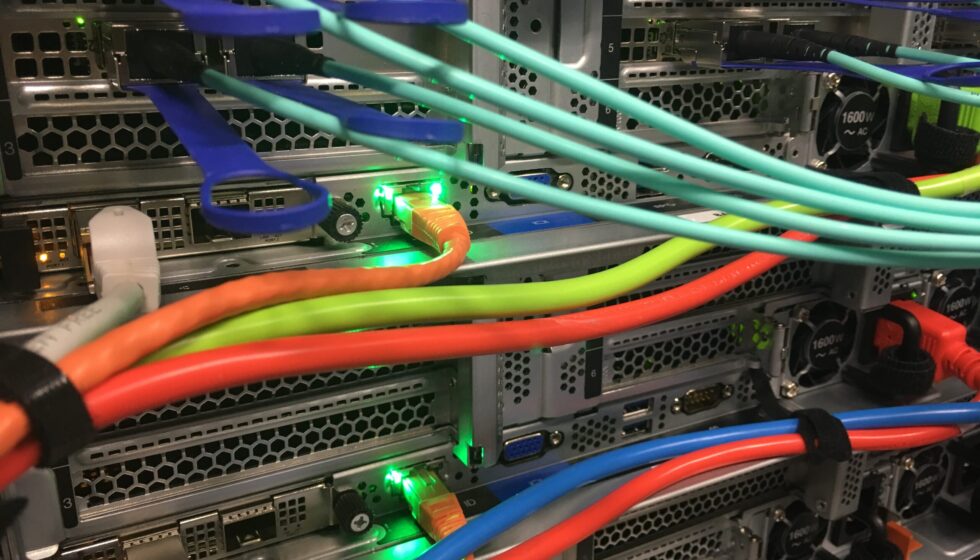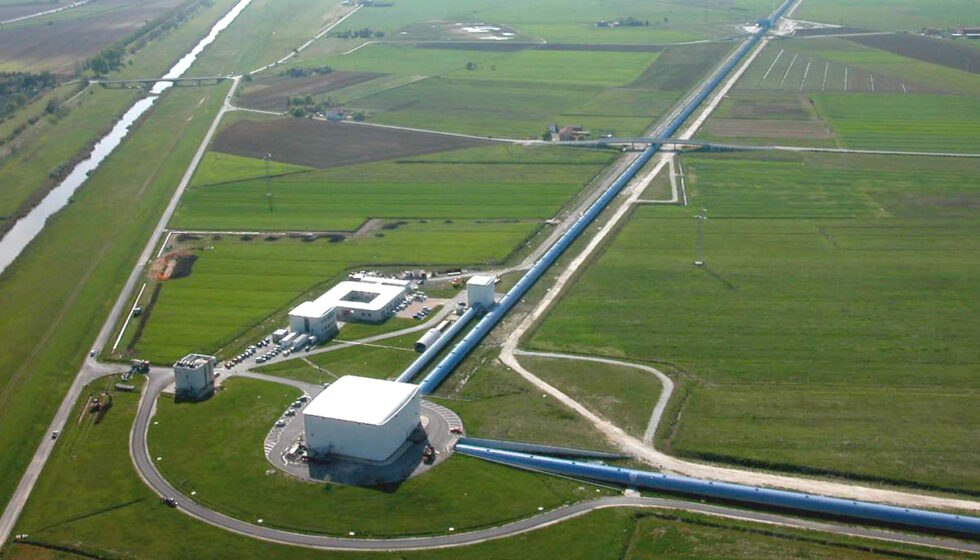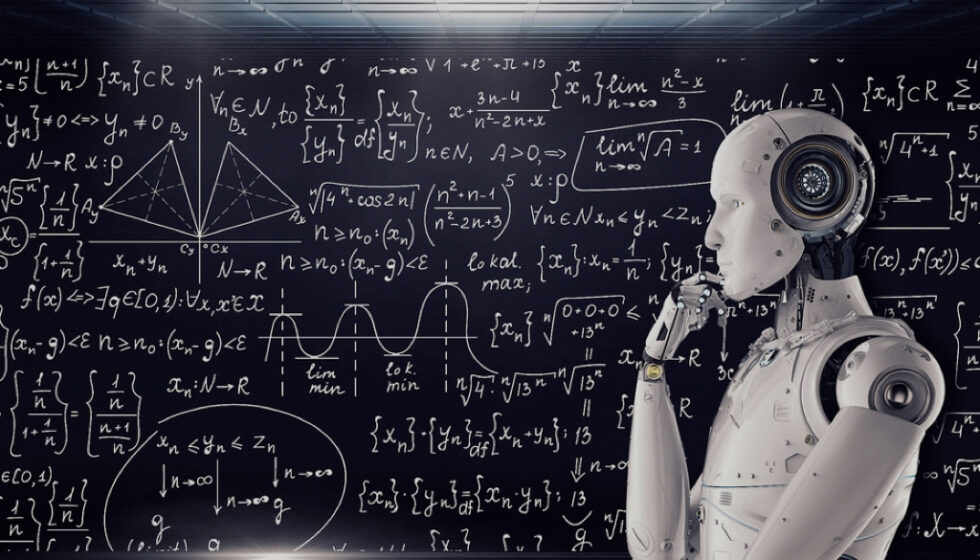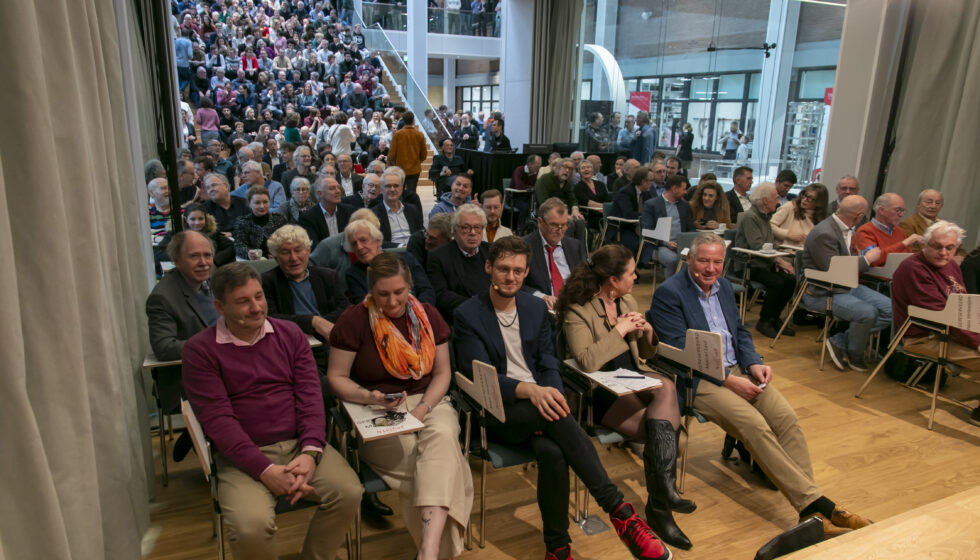National Institute for Subatomic Physics
Welcome to Nikhef. We are the Dutch National Institute for Subatomic Physics. Our institute performs research into the elementary building blocks of our Universe, their mutual forces and the structure of space and time.
Lees meer >>
Please note that some of the content on our homepage and further pages has not been translated into English yet.
What information are you looking for?
Recent news
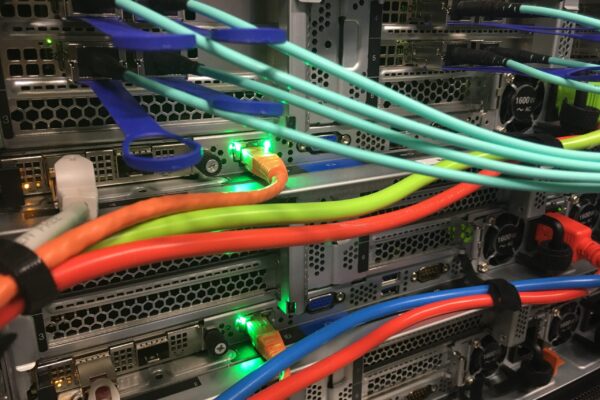
Test with superfast 800 Gbit internet between Amsterdam and CERN successful
Nokia and SURF have successfully tested an 800 Gbit/s data connection between Nikhef in Amsterdam and CERN in Geneva. Such a record speed is needed to transmit data…
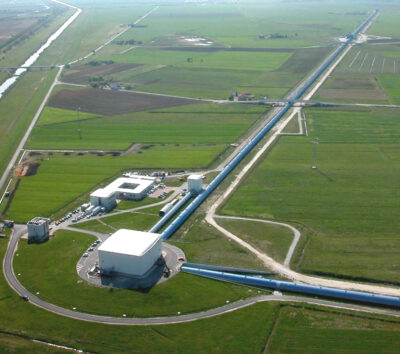
Virgo detector rejoins the hunt for gravitational waves
Italy’s Virgo gravitational wave detector is officially participating again in the hunt for space-time oscillations since Wednesday afternoon. At 5 p.m. in Pisa, glasses were raised to the…
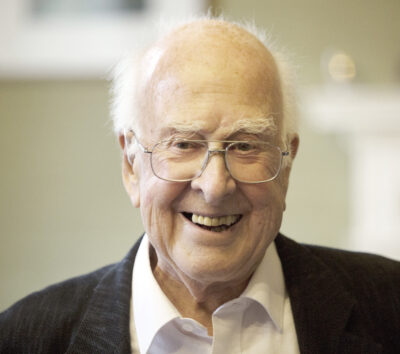
Theorist Peter Higgs passes away at age 94
British theoretical physicist Peter Higgs died Monday in his hometown of Edinburgh at the age of 94. His family announced his passing on Tuesday. The National Institute for…
Future events
Public debate on artificial intelligence in science
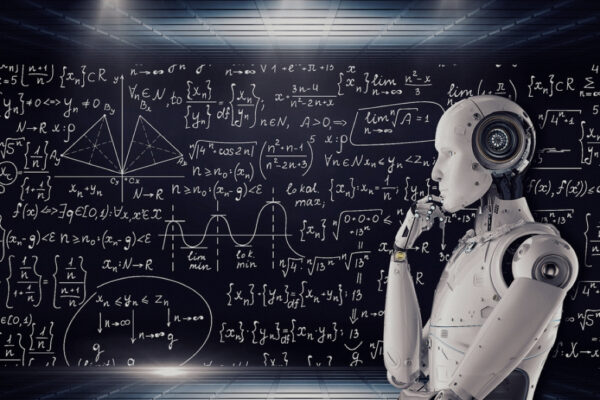
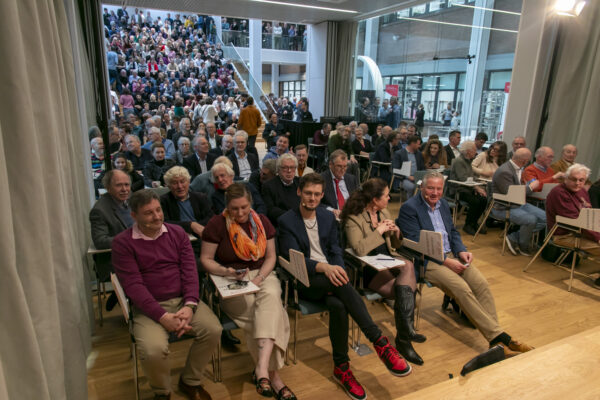
Nikhef Annual Scientific Meeting: Jamboree 2024
Nikhef-viewing of Neutrino, a film about “the poet particle”

Featured

PhD student Dylan van Arneman in Het Parool: it’s all about your drive

Weekly weblog master’s student Eva Groenendijk from Rome (3): Traffic and other chaos

